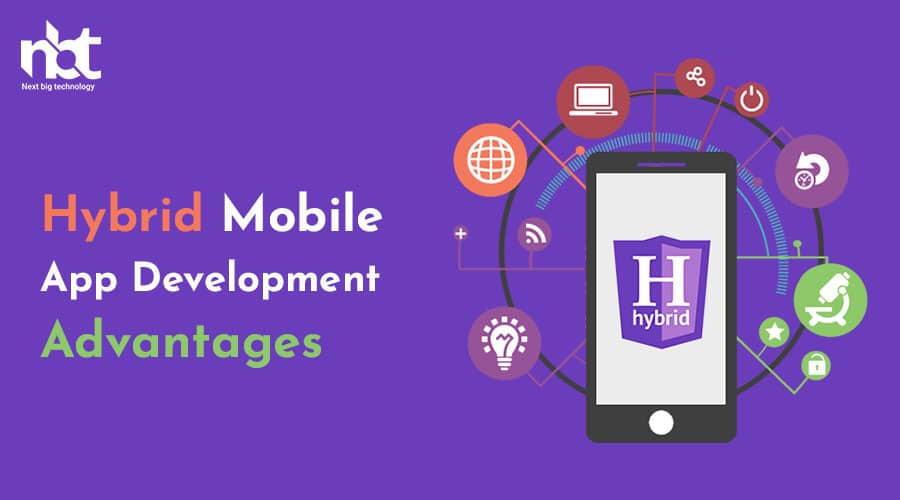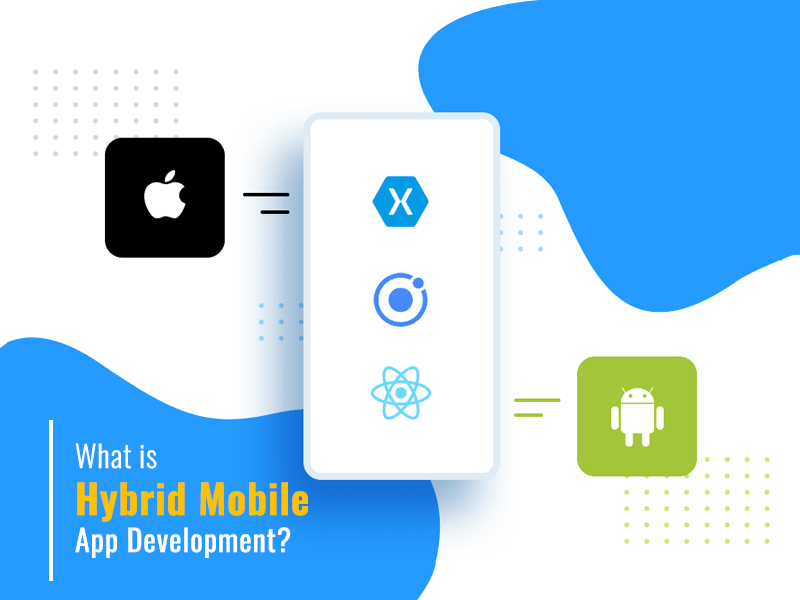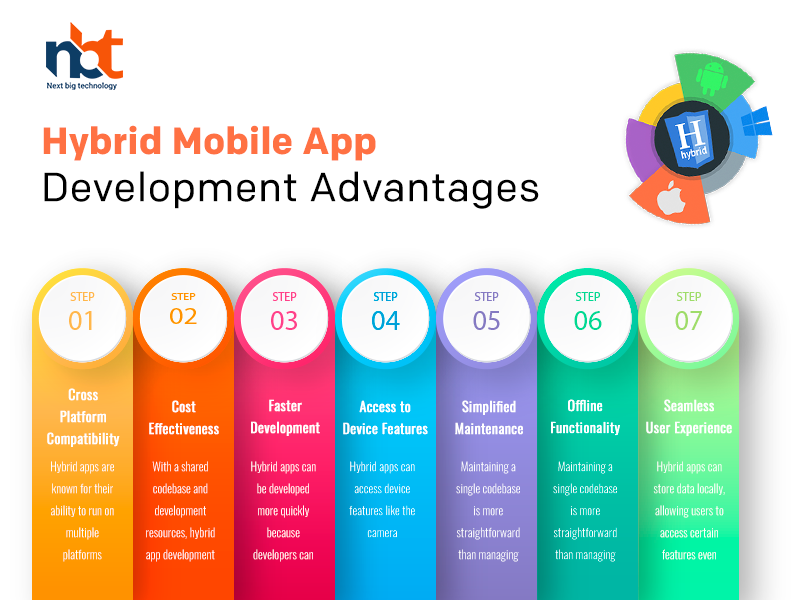Table of Contents
Introduction:
The world of mobile app development is constantly evolving, and businesses and developers are always seeking innovative solutions. One such solution that has gained prominence in recent years is hybrid mobile app development. In this blog, we’ll explore the advantages of hybrid mobile app development and why it’s a top choice for many businesses, all while aiming to rank at the top of Google searches.
What is Hybrid Mobile App Development?
Before we delve into the advantages, let’s briefly understand what hybrid mobile app development is. Hybrid apps are a combination of native and web apps. They are built using web technologies like HTML, CSS, and JavaScript, then wrapped in a native container, allowing them to run on multiple platforms with a single codebase.
Advantages of Hybrid Mobile App Development
1. Cross-Platform Compatibility:
Hybrid apps are known for their ability to run on multiple platforms, such as iOS, Android, and even the web, using a single codebase. This significantly reduces development time and costs.
2. Cost-Effectiveness:
With a shared codebase and development resources, hybrid app development is more cost-effective compared to building separate native apps for each platform.
3. Faster Development:
Hybrid apps can be developed more quickly because developers can reuse code components across platforms. This results in faster time-to-market for your app.
4. Access to Device Features:
Hybrid apps can access device features like the camera, GPS, and push notifications through plugins or APIs, offering a native-like experience.
5. Simplified Maintenance:
Maintaining a single codebase is more straightforward than managing separate codebases for multiple platforms. Updates and bug fixes can be applied universally.
6. Offline Functionality:
Hybrid apps can store data locally, allowing users to access certain features even when they are offline. This is crucial for applications that require continuous functionality.
7. Seamless User Experience:
Hybrid apps can provide a smooth and consistent user experience across platforms, ensuring that users get a unified experience regardless of their device.
8. Cost-Efficient Prototyping:
If you’re testing an app idea or need a prototype quickly, hybrid development offers a cost-effective way to create a functional prototype for user testing and validation.
9. Wide Developer Pool:
Finding developers with web development skills is often easier than hiring specialists in multiple native platforms, making it more accessible to businesses.
10. Access to Web Ecosystem:
“- Hybrid apps can leverage web technologies, libraries, and frameworks, opening up a vast ecosystem of resources and tools for developers.”
Why Hybrid over Native?
Choosing between hybrid and native app development is a decision that depends on various factors, including your project’s specific requirements and constraints. Hybrid app development offers distinct advantages over native development in certain situations, which may make it the preferred choice. Here are some reasons why you might choose hybrid over native development:
1. Cost-Effectiveness:
Hybrid app development allows you to write code once and run it on multiple platforms (e.g., iOS and Android). This significantly reduces development costs compared to building separate native apps for each platform.
2. Faster Development:
With a single codebase, developers can work more efficiently, leading to faster development timelines. This is particularly advantageous when you need to launch your app quickly.
3. Cross-Platform Compatibility:
Hybrid apps are inherently cross-platform, meaning you can reach a broader audience without the need for platform-specific development efforts.
4. Access to Web Developers:
Web developers are more widely available and often have skills in HTML, CSS, and JavaScript, which are the core technologies for hybrid app development. This makes it easier to find and hire developers.
5. Code Reusability:
Hybrid apps allow you to reuse a significant portion of your codebase across different platforms, reducing redundancy and simplifying maintenance.
6. Consistent User Experience:
Hybrid apps can provide a consistent user experience across platforms, ensuring that users get a unified look and feel regardless of the device they’re using.
7. Access to Web Ecosystem:
Hybrid app developers can leverage a vast ecosystem of web technologies, libraries, and frameworks, offering a wealth of resources and tools for development.
8. Simplified Maintenance:
Maintaining a single codebase is generally easier and more cost-effective than managing separate codebases for each platform. Updates and bug fixes can be applied universally.
9. Offline Functionality:
Hybrid apps can store data locally, enabling certain features to function even when the user is offline. This is crucial for applications that require continuous functionality.
10. Prototyping and MVP Development:
If you’re testing an app idea or need to create a prototype quickly for user testing and validation, hybrid development can be a cost-efficient and rapid option.
While hybrid app development offers these advantages, it’s essential to note that it may not be suitable for all types of applications. High-performance games, apps requiring complex graphics, or those heavily reliant on platform-specific features may benefit more from native development. Ultimately, the choice between hybrid and native depends on your project’s specific goals, budget, and technical requirements.
Conclusion
Hybrid mobile app development has proven to be a game-changer in the world of app development. Its ability to provide cost-effective, cross-platform solutions with a consistent user experience makes it a top choice for businesses looking to reach a broad audience efficiently. As you embark on your mobile app development journey, consider the advantages of hybrid development and how they align with your project’s goals and budget.
Thanks for reading our post “How to Accurately Estimate Android App Development Costs”. Please connect with us to know more about Hybrid App Development.












